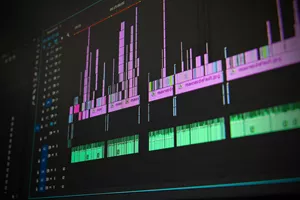Exclusive Management of Reprographic Rights Now Repealed
The new Decree 1036/2024 amends the regulation of reprographic reproduction rights management in Argentina and eliminates CADRA's exclusivity.

Decree 1036/2024, published on November 22, 2024, repealed Decree 736/2023, which had established an exclusive regime for managing reprographic reproduction rights in Argentina. This regime appointed CADRA (Centro de Administración de Derechos Reprográficos Asociación Civil) as the only entity authorized to represent authors, their successors and assignees, heirs, and publishers in the collection, administration, and distribution of pays for the total or partial reprographic reproduction of literary works, both in digital and physical format, pursuant to article 2 and related articles of Law 11723, and article 23 of Law 25446.
Decree 736/2023 granted CADRA exclusive powers to negotiate with third parties the form of collection and the amount of remuneration derived from reprographic reproductions in Argentina. It also included provisions allowing exemptions and reductions in the payment of the fee for certain sectors, such as public libraries, public universities, and institutions representing economically-disadvantaged groups, in cases where the cost of the fees could affect access to educational or research material.
The Executive based the repeal of the regime established by Decree 736/2023 on various difficulties in implementing the mechanisms for traceability and calculation of remunerations. According to it, it was unfeasible to identify precisely the works reproduced and to assign the amounts collected to the corresponding authors and publishers. It also points out that the method for calculating the royalty lacked a proportional and objective basis regarding the income obtained by the photocopying businesses, which generated economic and commercial distortions.
On the other hand, Decree 736/2023 vested CADRA with the power to manage payments for reproducing foreign publications in Argentina without establishing clear criteria on how to identify the use of such works and without guaranteeing the correct distribution to foreign authors and publishers of the funds collected.
Decree 1036/2024 also argues that the exclusivity granted to CADRA restricted free competition, preventing other associations or entities from representing the rights of authors and publishers on equal terms. It also reaffirms that copyright holders have full freedom to decide how to manage their property and who should represent their interests in the field of reprographic reproduction.
This regulation leaves without effect the provisions of Decree 736/2023 and eliminates the regulatory framework that regulated the exclusive management of reprographic reproduction rights in Argentina, with the purpose of ensuring a more equitable and operative system in the management of these rights.
This insight is a brief comment on legal news in Argentina; it does not purport to be an exhaustive analysis or to provide legal advice.